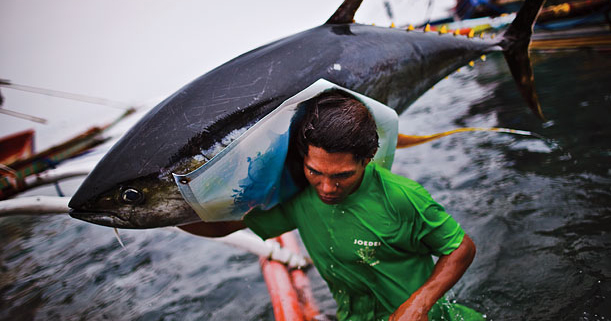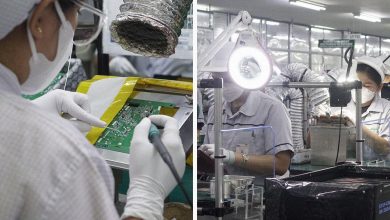PHOTOGRAPH FOR TIME by THOMAS LEE / ATLAS PRESS
GENERAL SANTOS CITY — The Philippines is setting its sights on leading the transformation of the global tuna industry towards sustainability with the adoption of monitoring mechanism that ranks industry players according to seven sustainability criteria.
The Department of Agriculture’s Bureau of Fisheries and Aquatic Resources (DA-BFAR) is adopting the Tuna Cannery Ranking Tool. This was revealed by DA-BFAR and environment campaigning organization Greenpeace, which developed the tool. The announcement comes two days before the start of the Tuna Congress 2018, where representatives of fisheries, regulators, communities and consumers from all over the globe will be gathering to discuss issues concerning the industry.
“BFAR Is fully supportive of the call for Philippine tuna canneries to strengthen their standards on traceability, sustainability and social equity. It is our hope that, through this initiative, we will become more motivated to pursue more sustainable practices and contribute to the global efforts for sustainable tuna management and conservation,” said Undersecretary Eduardo B. Gongona, Director of BFAR.
The Cannery Ranking assesses whether performance of tuna canneries are in the red (fail), yellow (fair) or green (good) zones, using a seven-point criteria: traceability; sustainability of current sourcing; legality, equity/social responsibility; sourcing policy; transparency and customer information; and driving change.
The first ranking, for 2015, revealed Philippine canneries as having failing performance in almost all criteria. Consequently, some canneries improved some of their practices, as seen in the second ranking. Greenpeace is expecting the third ranking to reveal more canneries in the yellow zone, but are hoping that canneries will all race to green.
“Philippine canneries going green is important, as local and global consumers and markets are increasingly demanding sustainable, traceable, and equitable tuna. Canneries play a key role in making sure that tuna will continue to swim our waters, thus contributing to ensuring food security and livelihoods for Filipinos,” said Greenpeace Philippines campaigner Vince Cinches.
“We are happy with the progress made by Philippine canneries, but they need to do more by ensuring that tunas they are selling, and that Filipinos are buying, do not come from slave labor, that there is no destructive fishing gears used, and that the company supports a transition towards sustainable fishing practices and the establishment of ocean sanctuaries in the high seas,” Cinches added.
The Philippines is in a position to influence the global tuna industry as the country is among the highest producers of tuna in the world, second only to Indonesia. The Philippines is also fifth largest exporter of processed/preserved tuna, exporting 370 million US$ in 2017.










